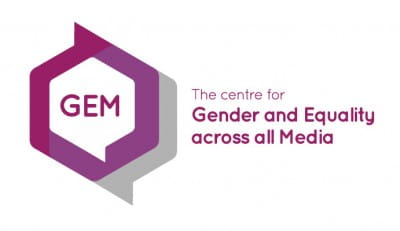Blog
The legacy of the Centre for Gender Equal Media
 The Centre for
Gender Equal Media (GEM) was a year-long initiative based at Durham
University from 2016 to 2017. Its aim was to generate evidence and
policy ideas to work towards a gender equal media and its vision was for
an open and democratic media that is accessible to all.
The Centre for
Gender Equal Media (GEM) was a year-long initiative based at Durham
University from 2016 to 2017. Its aim was to generate evidence and
policy ideas to work towards a gender equal media and its vision was for
an open and democratic media that is accessible to all.
Funded through the ESRC IAA fund at Durham Law School, the Centre was co-founded by Professor Clare McGlynn, Holly Dustin, Dr. Maddy Coy, and Dr. Fiona Vera-Gray, who left after helping establish GEM in its first year. Yeliz Osman acted as international advisor.
In a short space of time, GEM was able to shape and influence new laws, policies and practices and demonstrated the need for this work in the UK. We are very happy that an unaffiliated new organisation, GEM Scotland, will be continuing to work on these issues.
GEM’s achievements include
Helping to change law and policy on online abuse
- At the International Women’s Day reception at Number 10 on 8th March 2016, Professor Clare McGlynn discussed with then PM, David Cameron, the need for anonymity for victim-survivors of image-based sexual abuse (so-called 'revenge pornography')
- Our amendments were debated in the House of Commons and our ICM polling showed overwhelming public support: Three-quarters (75%) of the public agree that the Government should introduce automatic anonymity for all victim-survivors of 'revenge porn'
Influencing the regulation of gender stereotyped and sexualised media
- We submitted an expert response to the Advertising Standard Authority’s consultation on gender stereotyping in ads and attended a seminar as part of the inquiry. GEM’s work was referenced in the final report, Depictions, Perception and Harm and a new code on gender stereotyping in ads is being developed.
- We provided training to the British Board of Film Classification examiners on the complexities of sexual consent and coercion, demonstrative of our research-into-practice approach.
Contributing to the debate around children’s access to pornography
- We contributed to the debate around children’s access to pornography and the new policy of age verifying pornography websites in the Digital Economy Act. We published an ICM poll showing huge public support for these proposals
- 86% of respondents agreed that pornography websites and social media companies should be legally required to prevent children accessing online pornography
- Moreover, 78% of respondents support blocking websites as an enforcement action against companies that failed to comply.
- Our poll was discussed in the media and cited in debates in Parliament. We responded to the UK Government Consultation Child Safety Online: Age Verification for Pornography and said that measures are vital, they must be part of broader action to prevent violence against women and girls including tackling sexist attitudes to sex and relationships through education and public awareness campaigns.
Evidence to Parliament - sexual harassment and sexual violence in schools
- We gave oral evidence to the Women and Equalities Select committee and were interviewed in the media about this issue. Our work was widely referenced in the Committee's report when it was launched in September 2016
GEM also produced a number of briefings and consultation responses on key issues including:
- Age Verification on Pornography Websites: Justifications, enforcement and prevention
- Anonymity for Victims of Image-Based Sexual Abuse (including ‘Revenge Porn’)
- UK Government’s Ending Violence against Women and Girls Strategy 2016-2020
Click here for GEM’s end of year bulletin in 2016.
Comments: 0 (Add)
Get in touch
Explore how you can contribute to our vision of a more gender-equal media and culture in Scotland by reaching out today.
Sign up to our mailing list
Sign up to receive updates on EMCC events, opportunities, and our latest reports, straight to your inbox: